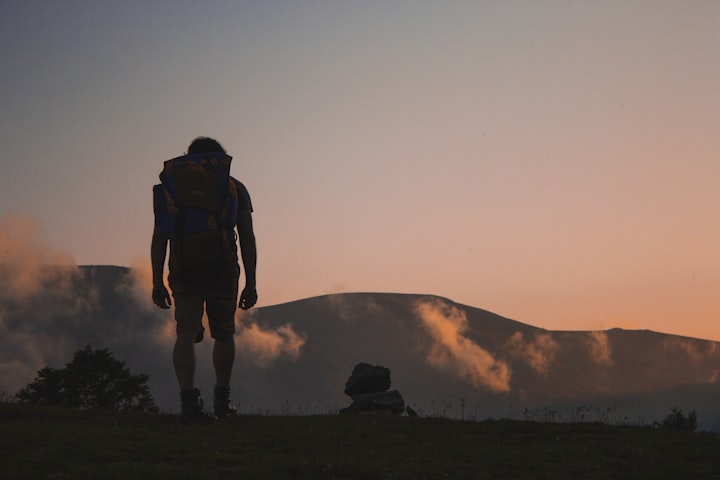Homework
Writing prompts

I used to give my students writing prompts and call it Homework.
Here are some writing prompts for you to try.
What do you love?
You love what you love. You love who you love. Some loves are pretty universal.
What do you love that nobody else does? Write about that.
Write about it in such a way that you make the reader share your love or at least begin to understand it.
Dear Diary
The defining thing of being human is that we make a story of everything — no other animal does this.
If you find a Dolphin Dostoevsky you needn’t worry about anything ever again.
We want our lives to have meaning, to make a good story, to have a narrative arc.
We lead richer inner-lives of fantasy yet external-life is mundane.
The change that you want won’t be found in your pockets.
What do you choose to record?
Stuff and Things
How do you convey objects in a non-visual medium?
Write 2–3 pages of radio script, purely sound.
Ground in a contemporary setting.
Indicate the presence of physical things through sound and dialogue to give context, with naturalistic dialogue and no forced moments.
Define objects against their context.
Define yourself against your contemporaries.
Clothes don’t maketh character
Challenge the belief that if you know someone’s socio-economic context then you know them.
This is a conceit.
Through subtle use of language you can bypass cliché and obliquely enter the world of objects.
Or something like that anyway.
Write 250 words where someone’s clothes or appearance belies (or is at odds with) their true personality and character.
Objections
Think about the world of objects as it meets character.
Describe six objects in vivid detail with no mention of context.
By the end of the piece you must have a feel of the person’s experience from the language — the human in the inanimate.
Explore physical objects for human content.
That’s how I’m living
“If you want to know about a tree, go to the tree” — Haiku master
Describe the place you do most of your writing and how you feel about it.
From following exercise I wrote loads, but it’s obvious that I’ve not been using the room much to write in — how to make it better?
Remove all the shit!
Creation of a sacred space and a willingness to see everywhere as a sacred space and every moment as an opportunity to write.
Other eyes do not matter — you are not speaking to them (like overheard conversation).
I write in a room.
Or more accurately I am supposed to write in the room as that is where I do everything else.
The bed where I sleep is unmade and beneath the covers there are books and broken pens, and scribbled pages [I can no longer read and decipher my handwriting] — phone numbers, to do lists.
On a good night I throw them on the floor, or else I wake up with books indented into my body or my body covered in ink.
[red ink, so I think I have been bleeding].
The floor is a rumour — I’ve heard it is there beneath all the clothes and paper and more books.
Carrier bags full of folders amount to my filing system.
And a pile of clean clothes in one corner of the room is my wardrobe.
The curtains are drawn during the day and open at night until early morning so that I can be woken by the sun instead of the alarm clock.
The expensive CD system has CDs piled on the amp and books piled up in towers on the speakers.
My shelves are lined with books and CDs and broken alarm clocks.
The old black wooden table used to be the kitchen table were I did my homework as a kid at four in the morning.
I have a leather chair and a laptop with one key missing like a broken tooth.
The rest of the desk is covered in papers and bank details, under which a Buddha statue is hiding, looking suitably unimpressed.
Under the desk I have a pile of notebooks filled with my dodgy handwriting and copies of other people’s poems or pictures that I have scribbled over.
This is where I write — or more accurately, where I sit down to write, throw papers onto the floor, answer email, surf the internet, listen to music, sleep, sit in the corner [and cry], and then where I leave when I want to write.
Although I do write there, I usually want to leave the room.
I take my laptop downstairs and sit in the kitchen in silence or with the TV playing in the other room.
At three in the morning, when the house is empty, suddenly I can write and everything becomes clear.
Or when the shops have shut and I realise I’ve done most of the day without thinking straight or being able to write well, I get up, leave the house with an empty notebook and get myself on the nearest train to everywhere.
Then I can sit at a table writing away in my notebook, thinking clearly, and feel that I am getting somewhere.
[Then I can sit and write and feel like I’m getting somewhere].
There is a difference between what you think writers do and how you really write. The myths and the man.*
*This was written many years ago. I’m just sharing unedited pages from my notebooks. I’ve tidied up a bit since then. And I have a Macbook Air with all the keys still intact.
Writing is introducing the reader to something that you already see
Write down 10 things on separate scraps of paper.
Mix them up.
Write down definitions for those 10 things on separate scraps of paper.
Mix them up.
Take a random thing and random definition and write them down as one line.
Do this until you’ve defined everything.
Write it out as a poem.
Sample lines are given below as an example:
- Jealousy is the man who tends wildlife.
- A house is a feeling of togetherness.
- Death is a container kept at a constant low temperature.
- A car is a long stick with bristles.
- Harmony is the pre-ordained road of life.
- A rainbow is a pain inside the head.
- Grief is the gathering of waterdrops in the sky.
- A book is the large grandiose home of royalty.
- Comfort is overindulgence in food and wealth.
- A barge is a dwelling in which to live a simple life.
- Love is the fruit Eve was forbidden to eat.
- Happiness is that which gives pleasure to the beholder.
- A headache is a place where people live.
- Fear is something you attach to the floor to stop doors from opening.
- A car is violence of the human heart.
- Destiny is an implement for digging.
- Pain is a set of teeth with four legs attached to it.
- Happiness is the movement of your life.
- A feeling is a violent game that men play.
- An Army General is a meal ticket.
- Honey is a time-filled space.
- Life is a mistake.
- Greed is Joy.
- An aeroplane is misery.
- Anger is care-free elation.
- A boat is a means of transport for some and prestige for others.
- Misery travels on water.
- Tension is a furry animal.
- Love is a spectrum of colours in the sky caused by rain being a prism and breaking the light.
Lessons Learned
Homework: What are the three most important lessons you’ve learned by the end of your life?
1) meaning of life — there isn’t one so make your own, you can achieve anything full-stop.
2) you’re more powerful than any authority.
3) go directly to park place and put your life there, do not pass go, forget about the £200.
This is critical because there’s nothing really holding you back other than fear.
You have a life purpose, magick works, and the things you fear including “how it is in the real world” are fiction.
Reality is paper-thin.
James Garside is an independent journalist, author, and travel writer. Join Chapter 23 for the inside track on all their creative projects and insights about life, work, and travel.
About the Creator
James Garside
NCTJ-qualified British independent journalist, author, and travel writer. Part-time vagabond, full-time grumpy arse. I help writers and artists to do their best work. jamesgarside.net/links






Comments
There are no comments for this story
Be the first to respond and start the conversation.